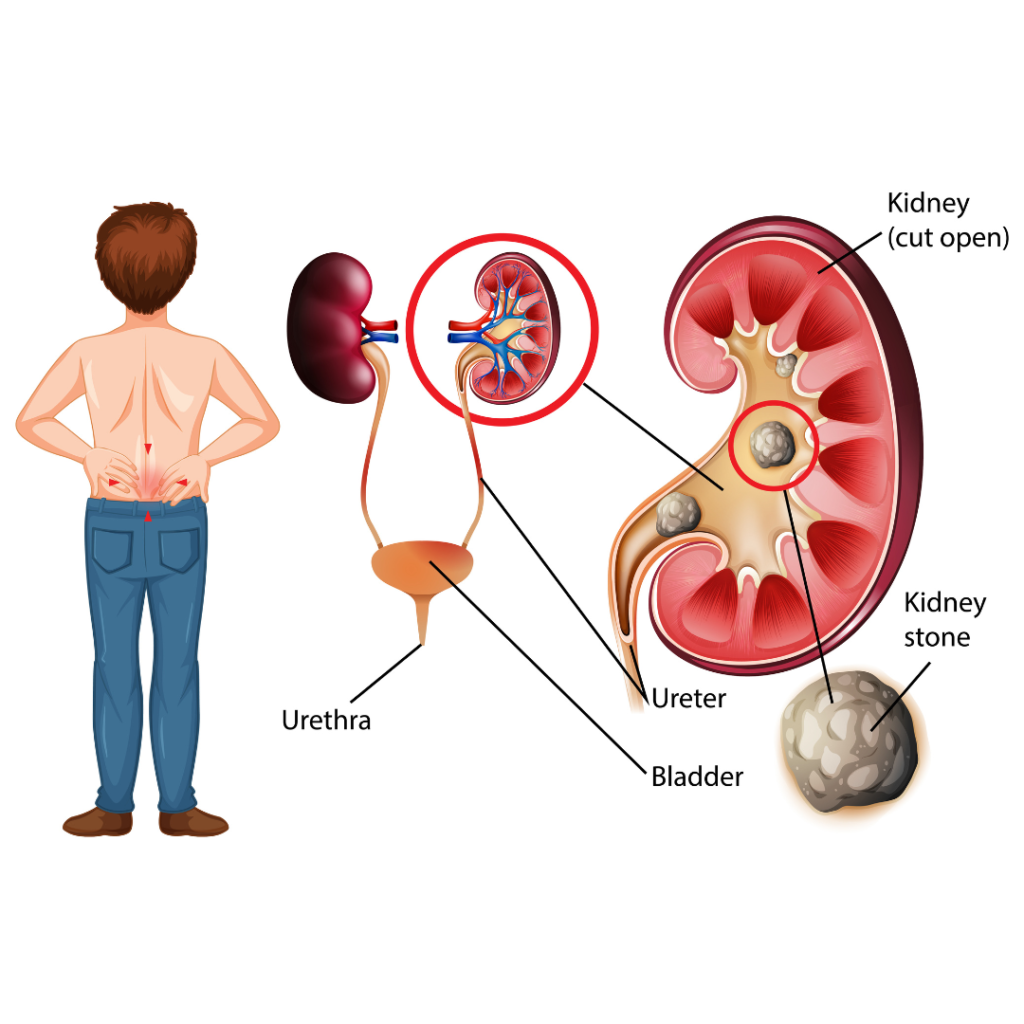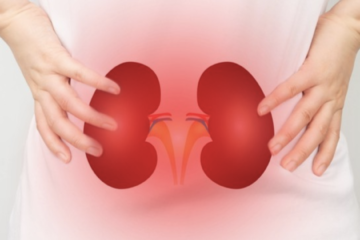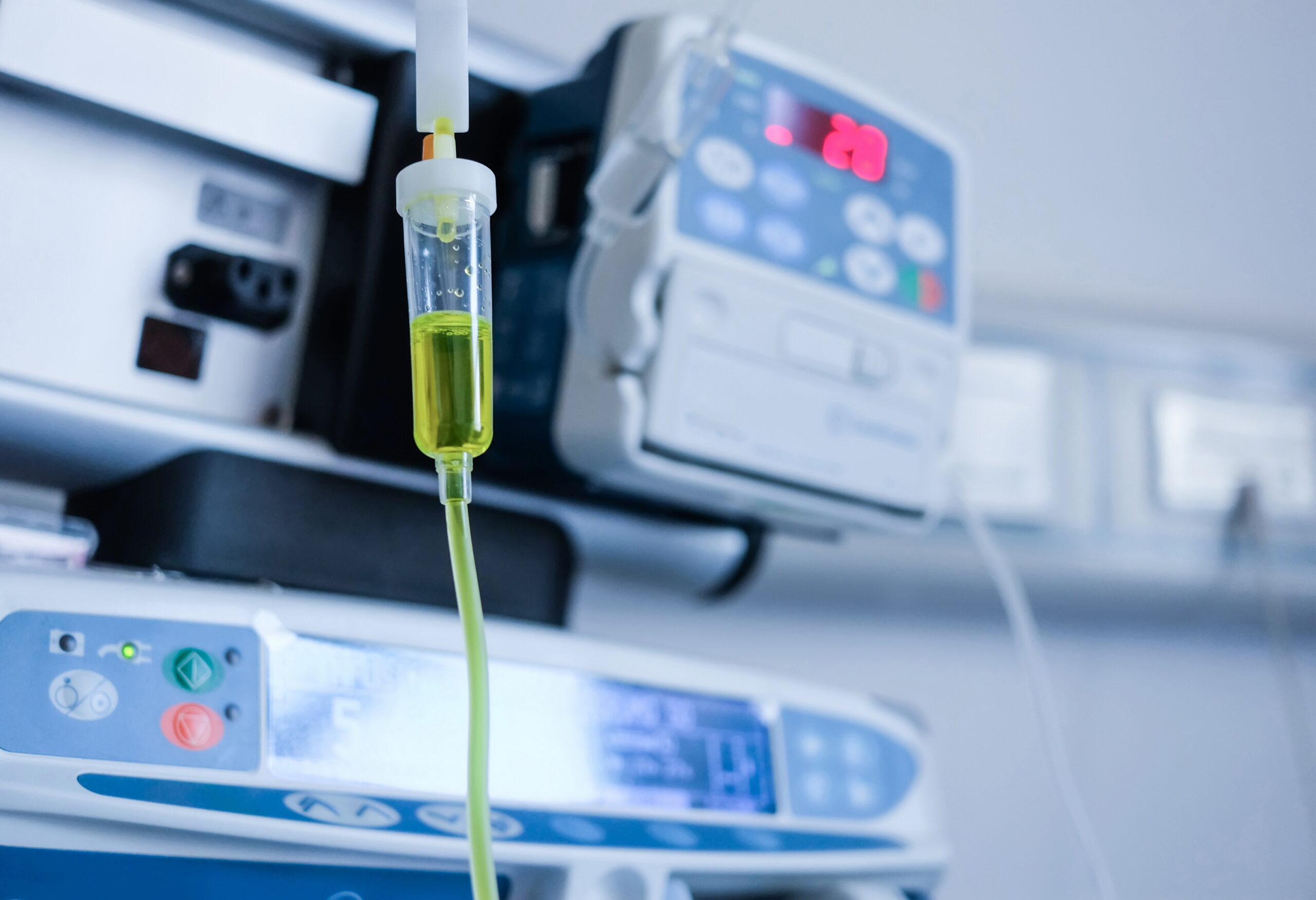
Kidney stones are more than just painful little crystals that disrupt our lives; they’re a reminder of how our daily habits can have a profound impact on our health. These small, solid masses that form within our kidneys are often the result of certain lifestyle choices and behaviours. While genetics can play a role, it’s essential to recognize that many cases of kidney stones are preventable. In this blog, we’ll delve into five common habits that significantly increase your risk of developing kidney stones. By understanding these risk factors, you can take proactive steps to protect your kidney health and potentially spare yourself the excruciating pain and discomfort associated with this condition.
Certainly, let’s delve into the five habits that can increase your risk of developing kidney stones and explore each one in detail.
1. Inadequate Hydration
Insufficient water intake is one of the most significant risk factors for kidney stone formation. When you don’t drink enough water, your urine becomes more concentrated, allowing minerals and salts to crystallize and form stones within your kidneys. Dehydration also reduces urine output, which means these minerals remain in the kidneys longer, increasing the likelihood of stone formation.
How it works:
- When you’re dehydrated, your urine becomes darker and more concentrated. This concentrated urine provides an ideal environment for minerals like calcium, oxalate, and uric acid to come together and form solid crystals.
- Adequate hydration helps dilute these minerals, making it harder for them to aggregate and form stones.
- To prevent this, aim for at least eight 8-ounce glasses (about 2 litres) of water daily. In hot climates or during physical activity, you may need more.
2. Excessive Sodium Consumption
A high-sodium diet can contribute to kidney stone formation, particularly if you’re predisposed to developing them. Sodium can increase calcium levels in your urine, making it more likely for calcium-based stones to form. Additionally, excessive sodium intake can lead to dehydration, further promoting stone formation.
How it works:
- High sodium levels increase the amount of calcium excreted in your urine. Excess calcium in your urine can combine with other compounds to form kidney stones.
- A diet rich in sodium can lead to dehydration by increasing urine output. Dehydrated urine is more concentrated, which facilitates stone formation.
- Reducing sodium intake involves avoiding processed and packaged foods, which often contain high levels of salt. Opt for fresh, whole foods and use herbs and spices for flavouring instead of salt.
3. Excessive Animal Protein Consumption
Diets high in animal proteins, such as red meat, poultry, and seafood, can elevate your risk of developing kidney stones. Animal proteins can lead to higher levels of uric acid and calcium in the urine, both of which can contribute to stone formation.
How it works:
- Animal proteins can increase the excretion of uric acid, which can crystallize and form uric acid stones.
- They can also lead to higher levels of calcium in the urine, providing the necessary ingredients for calcium-based stones.
- To reduce this risk, consider incorporating more plant-based proteins like beans, lentils, and tofu into your diet, and consume animal proteins in moderation.
4. Inadequate Calcium Intake
Paradoxically, not getting enough calcium in your diet can also increase your risk of kidney stones. Calcium binds to oxalate, a naturally occurring substance found in many foods, and prevents it from being absorbed and excreted through the kidneys. When calcium intake is too low, oxalate can accumulate and promote calcium oxalate stone formation.
How it works:
- Adequate dietary calcium binds to oxalate in the digestive tract, reducing its absorption and subsequent excretion through the kidneys.
- Low calcium intake can lead to oxalate buildup in the kidneys, increasing the risk of stone formation.
- Strive to meet the recommended daily intake of calcium through sources like low-fat dairy products, fortified foods, and leafy green vegetables.
5. Ignoring Medical Conditions and Medications
Certain medical conditions and medications can increase your susceptibility to kidney stones. Conditions like urinary tract infections, inflammatory bowel disease, and gout can raise your risk, as can specific medications like diuretics and antacids containing calcium.
How it works:
- Urinary tract infections can introduce bacteria that promote stone formation.
- Inflammatory bowel disease can affect nutrient absorption and lead to imbalances that contribute to stone formation.
- Gout is associated with high uric acid levels, increasing the risk of uric acid stone formation.
- Medications like diuretics increase urine output and may lead to more concentrated urine while calcium-containing antacids can raise calcium levels in the urine.
Conclusion
Your kidney health is not something to take lightly. Kidney stones can be excruciatingly painful and disrupt your life in significant ways. However, armed with knowledge about the habits that increase your risk, you have the power to take control of your well-being. By staying adequately hydrated, watching your sodium and animal protein intake, ensuring proper calcium consumption, and managing underlying medical conditions and medications, you can significantly reduce your risk of developing kidney stones.
Prevention is the key, and lifestyle changes can help you enjoy a stone-free future. Your kidneys play a vital role in your overall health, and taking steps to protect them is an investment in your long-term well-being. So, remember to stay hydrated, make healthy dietary choices, and work closely with your healthcare provider to minimise your risk of kidney stones. Your future self will thank you for the effort and care you put into maintaining good kidney health.
Dr. Sumit Sharma is an experienced urologist, andrologist, and kidney transplant surgeon with over 20 years of clinical experience. He is the founder of the Department of Urology at multiple hospitals in Gurgaon and has established successful kidney transplant programs across the city.
Here are some Frequently Asked Questions (FAQ) on Risk for Kidney Stones
Q. What are kidney stones, and why should I be concerned about them?
Kidney stones are small, hard mineral deposits that form in the kidneys and can cause severe pain when they pass through the urinary tract. You should be concerned because they can lead to excruciating pain and potentially serious complications if left untreated.
Q. What habits increase the risk of kidney stones?
There are several habits that can increase your risk of kidney stones, including inadequate hydration, excessive sodium consumption, excessive animal protein intake, inadequate calcium intake, and ignoring medical conditions or medications.
Q. Can a high-sodium diet really lead to kidney stones?
Yes, excessive sodium intake can increase calcium levels in your urine, contributing to calcium-based kidney stone formation. Additionally, it can lead to dehydration, which further promotes stone formation.
Q. Why is excessive animal protein consumption a risk factor for kidney stones?
Diets high in animal proteins can elevate uric acid and calcium levels in the urine, increasing the risk of uric acid and calcium-based kidney stones.
Q. Isn’t it counterintuitive that inadequate calcium intake can lead to kidney stones?
It may seem counterintuitive, but low calcium intake can lead to oxalate buildup in the kidneys, increasing the risk of calcium oxalate stone formation. Adequate dietary calcium can help prevent this by binding to oxalate in the digestive tract.
Q. How do medical conditions and medications contribute to kidney stone risk?
Conditions like urinary tract infections, inflammatory bowel disease, and gout can introduce factors that promote stone formation. Certain medications, such as diuretics and calcium-containing antacids, can also increase the risk by affecting urine output and mineral levels.
Q. Who is the best urologist in Gurgaon?
Dr. Sumit Sharma is an experienced urologist, andrologist, and kidney transplant surgeon with over 20 years of clinical experience. He is the founder of the Department of Urology at multiple hospitals in Gurgaon and has established successful kidney transplant programs across the city.
Q. Can kidney stones be prevented by making lifestyle changes?
Yes, many kidney stones are preventable by adopting healthier habits. By staying hydrated, reducing sodium and animal protein intake, ensuring adequate calcium intake, and managing medical conditions and medications, you can lower your risk.
Q. Is there a specific diet to follow to prevent kidney stones?
While there isn’t a one-size-fits-all diet, adopting a balanced diet that includes plenty of water, fruits, vegetables, and whole grains while moderating sodium, animal protein, and oxalate-rich foods can help reduce the risk of kidney stones.
Q. When should I seek medical attention if I suspect I have kidney stones?
If you experience severe pain, blood in your urine, fever, or signs of infection, seek immediate medical attention. Kidney stones can lead to serious complications, so prompt diagnosis and treatment are crucial.



